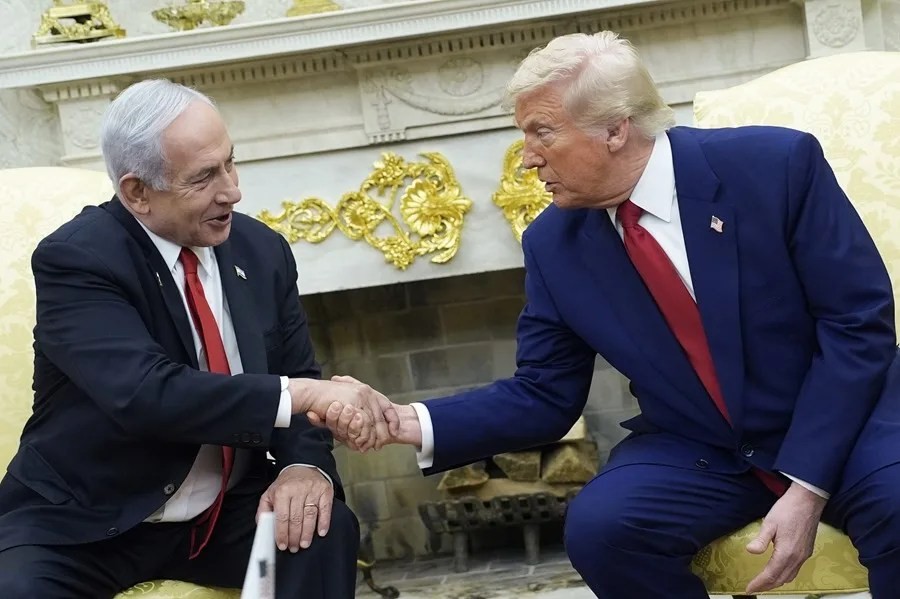Netanyahu and Trump Collaborate on Gaza Plan Amid Escalating Conflict—What Does This Mean for America?
Israeli Prime Minister Benjamin Netanyahu reveals ongoing work with President Donald Trump on a 21-point plan to end Gaza hostilities, raising urgent questions about America’s role in Middle East stability and national security.

As violence escalates in Gaza with mounting casualties topping 66,000 Palestinians according to international reports, Israeli Prime Minister Benjamin Netanyahu announced he is collaborating closely with President Donald Trump on a comprehensive 21-point plan aimed at ending hostilities in the region.
Speaking ahead of a high-stakes meeting at the White House, Netanyahu emphasized their shared goal: to dismantle Hamas’ military capabilities and secure the release of Israeli hostages—a mission central to defending Israel’s sovereignty. Yet while the plan remains unfinished, the stakes could not be higher not just for Israel but for American interests deeply intertwined in Middle Eastern security.
Is Washington’s Approach Putting America First or Losing Focus?
President Trump’s public commitment to what he calls “a true opportunity for greatness” in the Middle East sounds promising—but we must ask, greatness for whom? The long history of U.S. involvement in the region has often seen Washington entangled in conflicts that undercut both our national security and economic prosperity. The Biden administration’s muted response contrasts sharply with Trump’s more direct engagement, underscoring a decisive America First approach that prioritizes clear strategic outcomes rather than global appeasement.
Netanyahu described Trump as an “incredible ally” and “independent leader” who acts decisively based on American interests. This partnership highlights a critical shift back towards policies that safeguard our allies and confront hostile actors like Hamas head-on. For families across America concerned about terrorism and instability fueling crises—from border security threats to energy supply disruptions—this is not just foreign news; it impacts everyday safety and prosperity at home.
Why Does This Matter to Everyday Americans?
The United Nations’ growing chorus labeling Israel’s military actions as genocide demands scrutiny—especially considering how international bodies regularly engage in biased campaigns undermining sovereign nations aligned with U.S. allies. Allowing such narratives to drive policy risks weakening America’s negotiating position while emboldening radical groups threatening both regional peace and American citizens abroad.
- This planned agreement aims not only to protect Israeli lives but also to stabilize a volatile hotspot that historically spills over into broader security threats affecting our borders and economy.
- An America First policy requires supporting pragmatic solutions crafted by leaders like Trump who understand that strength through alliances guarantees freedom and peace for Americans at home.
How long will Washington tolerate globalist pressure that compromises national interests? The Netanyahu-Trump initiative offers a chance to reset Middle East dynamics favorably—but only if policymakers resist distractions from international condemnation campaigns designed more for political posturing than real peace.
America stands at a crossroads: support decisive action protecting allies and homeland security or risk further erosion of national sovereignty through ineffective diplomacy masked as humanitarian concern. This plan’s success—or failure—will echo far beyond Gaza’s borders directly impacting American families who value freedom, safety, and economic opportunity.
